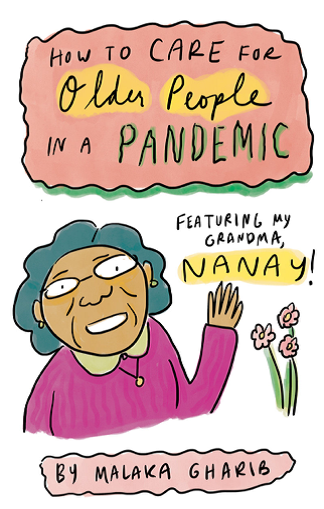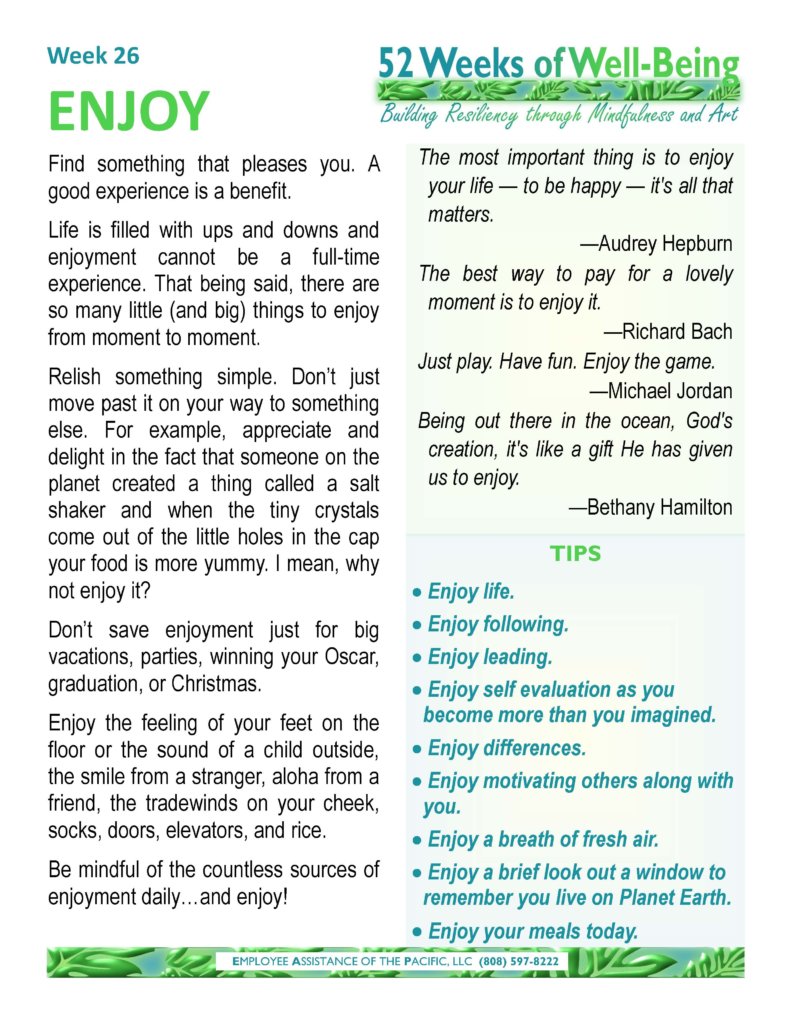Caring for the Elderly, Reinventing Rituals & Enjoyment
 How to Care for Older People in a Pandemic
How to Care for Older People in a Pandemic
NPR, September 13, 2020
After I shared my family’s experience in trying to care for my 92-year-old grandmother in the pandemic, I wanted to know: How do we help older people feel safe and comfortable — and happy — in these times?
So I asked three experts to share some advice on how to help. And I invited readers to share their tips, too. Dozens of readers wrote in. Here are some of my favorites from the reader submissions.
- Stay in touch
Keep older relatives in the loop. Share your joys, discuss your sorrows and ask their advice. Even if it is over the phone or by FaceTime it makes us feel connected and relevant. – Barbara Goodman
- Organize virtual dinner and TV time
I am 74 years old and live alone yet every day I schedule virtual dinner meeting time with my remote family on Facebook Instant Messenger. After dinner we watch and share the same TV programs for one hour. Ironically, the required COVID-19 physical distance from my family has resulted in a much closer and stronger emotional and spiritual bond. – Dennis
- A good reminder
Stop treating older people like they are a problem to be solved! – Pat Gaydos
- Figure out ways to connect them to their interests
My mom is 92 and her eyesight is affected by macular degeneration. Because of this condition, she cannot see well enough to read. I asked her if she would like to listen to recorded books and she said yes. I went to the public libraries and found fiction based on the Depression era (when she was a child) and checked them out for her. I also purchased a simple CD player and wrote (in large letters) directions so that she could start and pause the CD herself. – Bernadette Potts
- Send a weekly postcard
My brother sent a postcard to our Mom once a week, with a message that told her what he was doing, such as … ate apple pie for dessert tonight … or took the dog to the vet for his annual check up … or saw this building today … simple things like that. He did this for 60 years. Isn’t that wonderful? – Lisa Simon
- Use their skills
Let us know how we can help! We are old but not dead. We have lots of skills … we can sew masks … make lunches for emergency workers … make family a meal. – Christine Gagnon
- Go for a pleasant drive or walk
My wife is 75 with fairly advanced Parkinson’s, requiring virtually 24-hour care by me. I’m 73. We are healthy and active, other than the challenges of her disease. Here are a couple of things we do: We go for car rides. The car is essentially an extension of the house’s safety bubble. We’ve found some places with great views of the ocean from the car. We bring a picnic lunch which is eaten in the car — sometimes followed by a brief snooze in a safe parking lot. – Roger Bentley
- Be patient
As a new caregiver for my father, I encountered a few situations that bothered me, such as my father asking the same question dozens of times. My advice: when he mentions or asks something for the umpteenth time, don’t show exasperation. Treat it like you’re an actor on a movie set. Your character is compassionate, patient, funny and doesn’t get upset or excited. Try your best to give an Oscar-winning performance every time. – Bob Chance
- Create a custom lesson plan
My sister was a teacher and educator for many years and was skilled at developing challenging and fun lesson plans. So she used our family history information as core curriculum and built a lesson plan for four days a week for my dad, which he does via email. A lesson plan example is, one arm of our family migrated to the U.S. in the 1800s via Tasmania, Australia and New Zealand. My sister sends an email about one of those relatives and ties that to a geographical lesson about where they lived at the time. The total lesson plan is on average an hour a day. If Dad is not up to doing the lesson, he can pass and then take it up another day.
PHOTOS: How The World Is Reinventing Rituals
Rituals are a part of human life. They give us comfort and help us mark major events in our life-cycle, from births and graduations to marriages and death. And they are also a part of our regular routines — even something as ordinary as going for a haircut or movie night.
But the rituals we used to take for granted every day have been dramatically upended by the pandemic. Click HERE to see photos from countries in Asia, Africa, Central and South America, North America and Europe — to document how people are reinventing rituals in the age of COVID-19.
(Source: National Public Radio, September 19, 2020)

